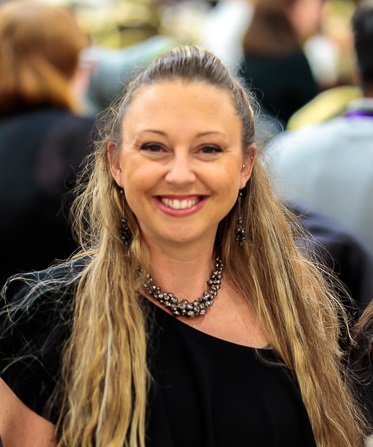- Faculty
- Features
- Local
- News
- Pullman Community
- TOP FEATURES
- WSU Everett
- WSU Pullman campus
- WSU Spokane
- WSU Tri-Cities
- WSU Vancouver
Former TRIO director to serve first-gen students
Overcoming homelessness, pursuing college as single mom influenced director’s ability to connect with students

Angie Klimko, director of First, will promote programs that focus on high-impact practices to help first-generation students excel in higher education.
November 20, 2020
A longtime staff member of WSU Pullman’s TRIO program transitioned into a new role aiming to serve first-generation students on all WSU campuses.
Angie Klimko is now the director of First, an organization that serves first-generation students on all WSU campuses, which she began Nov. 10. She was previously the director of TRIO Student Support Services at WSU Pullman.
Klimko will work with the vice-chancellors and Division of Student Affairs on each WSU campus in her new role. Klimko will also promote programs that focus on high-impact practices, which will help first-generation students excel in higher education, said Mary Jo Gonzales, vice president of student affairs. This includes internships, study abroad and tutoring.
Making information about those practices accessible and transparent to first-generation students is a big aspect of Klimko’s position, Gonzales said.
Klimko’s visionary and forward-thinking approach makes her suited for the director position, Gonzales said.
“As a first-gen, you don’t know always what you bring to the table,” she said. “Part of what I saw was her students’ ability to say to us, ‘She really helps me see what’s possible.’”
WSU’s Division of Student Affairs developed this new role, Gonzales said. The division wanted a cohesive plan to support first-generation students, no matter which campus they are at.
“Our first-generation students bring a different lived experience, which brings a different lens of diversity to the six campuses,” Klimko said.
Many first-generation programs are directed toward students in the WSU Pullman campus, Gonzales said. Access to those programs needs to be expanded and tailored to fit each campus’s needs and demographics.
Thirty-three percent of all WSU students are first-generation, according to the Division of Student Affairs’ website.
“We need to recognize that the way first-generation plays out for each of our students on each of our campuses is different,” Gonzales said.
Klimko said her ability to connect with students is rooted in her experiences with homelessness and navigating higher education as a ninth-grade dropout and single mom.
“The decisions I made have led me to where I am today,” she said. “It also lets me relate to many of the students that we serve [who come] from the background that I have.”
Klimko said she experienced different types of trauma growing up. She lived with a single mom and in a low-income household. She would often hang out with groups who were older than her.
Klimko said she was 15 years old when she dropped out of high school. She moved away and lived by herself. Klimko moved to Seattle when she was 17 after her boyfriend died. Struggling to hold steady employment, she ended up homeless.
“I thought I knew everything,” she said. “There [were] a lot of things I wanted to escape from.”
In 1996, Klimko’s son, Zane, was born. His presence in her life changed everything. Klimko said she decided to attend college so she could give her son a better life.
“He changed my life because I had something more to live for,” she said.
When Klimko was 23 years old, she attended Walla Walla Community College in Clarkston as a single mom. WWCC’s TRIO SSS program helped her transfer to WSU Pullman, she said.
Klimko said the experience showed her the importance of empowering and helping students navigate college.
“It’s hard to navigate a world that you don’t know about,” she said.
Klimko received her bachelor’s in psychology in 2001 and graduated with a master’s in communication in 2003.
After moving back to Seattle in 2004 with her son, she became homeless again. Klimko did not let this adversity deter her from building a better life for her son. She ended up working in transitional housing from 2005-07 where she helped house homeless families in Seattle.
In 2008, Klimko returned to Pullman and worked with WSU’s Trio SSS as a retention counselor, serving as director in 2016. Transitioning to her new role as director of First is difficult because she has spent years working with TRIO, she said.
“[TRIO] was my heart and soul,” Klimko said. “It’s bittersweet, in a way, because I’m TRIO for life.”









